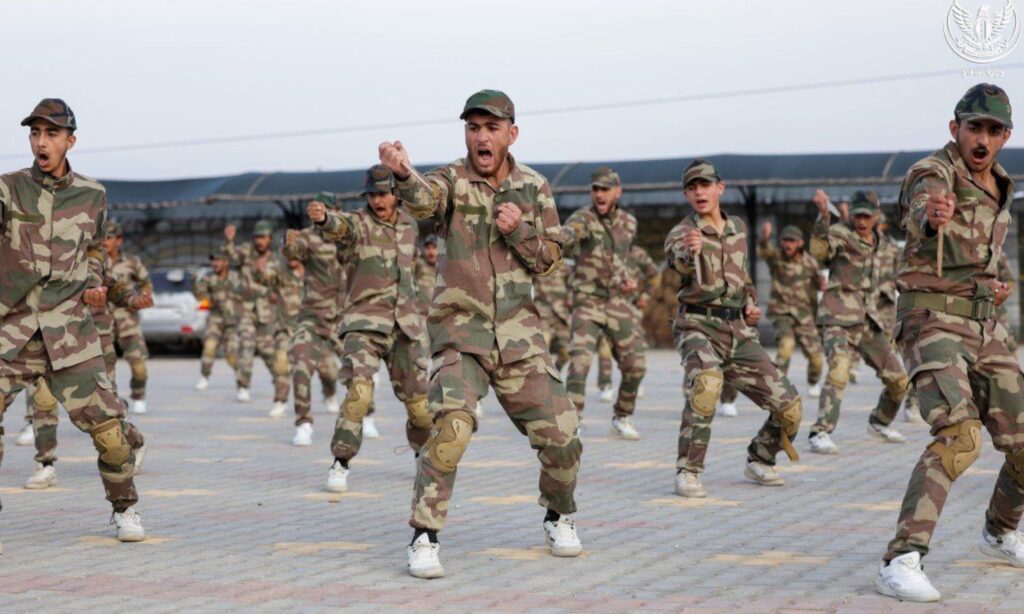
The announcement of this merger follows reports of a military consolidation under the name of the Syrian Liberation Army.
The Ministry of Defense of the Syrian Interim Government announced on Tuesday, June 25, the merger of several of its formations within the National Army under the new name of the Renaissance and Liberation Movement.
According to the ministry’s statement, the Samarkand Brigade, Brigade 112, and Glory Corps have merged to form the Renaissance and Liberation Movement.
This new entity comprises the 36th Division (Glory Corps) and the 37th Division (Samarkand Brigade and 112th Brigades) within the ranks of the Third Corps.
The announcement of this merger follows reports of a military consolidation under the name of the Syrian Liberation Army. However, Ziad Khalaf, head of the political bureau of Ahrar al-Sharqiya Division, denied these reports to Enab Baladi.
Affiliated with the Liberation and Building Movement, the leader of Ahrar al-Sharqiya clarified that the news about the merger and the creation of a new formation is inaccurate, and there are currently no changes in the Liberation and Construction Movement.
The exact number of “national” members remains fluid. The National Coalition for Revolutionary and Opposition Forces claimed there were 80,000 fighters in 2019, while a report from the Middle East Institute in October 2022 suggested the formation includes between 50,000 to 70,000 fighters.
The National Army continues to witness mergers and defections among its various formations, despite the factionalism that persists under multiple names, all affiliated with the National Army.
Following factional conflicts and the incursion of Hay’at Tahrir al-Sham into areas of Aleppo countryside in 2022, the Syrian Interim Government has shown efforts to reorganize and restructure the National Army, despite numerous previous attempts.
In a report last May, Enab Baladi disclosed the recruitment of fighters within the “national” ranks to participate in conflicts in West Africa, specifically Niger, Burkina Faso, and Nigeria. This recruitment, involving payments ranging from 1,000 to 1,500 US dollars, was facilitated by the Sultan Murad Division and supported by Turkey, marking a complex and secretive endeavor.
